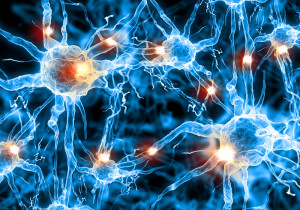The Signs & Symptoms of ALS
Amyotrophic lateral sclerosis (ALS) , also known as Lou Gehrig’s disease, causes a gradual degeneration in the upper and lower motor neurons located throughout the brain, brainstem and spinal cord. While most diagnosed cases occur in late middle age, ALS can claim victims of every age. The initial symptoms are often so mild that they are completely overlooked.
, also known as Lou Gehrig’s disease, causes a gradual degeneration in the upper and lower motor neurons located throughout the brain, brainstem and spinal cord. While most diagnosed cases occur in late middle age, ALS can claim victims of every age. The initial symptoms are often so mild that they are completely overlooked.
As the degeneration continues to proliferate throughout the motor neurons, it can cause symptoms such as:
- Muscle weakness in the limbs and out extremities
- Difficulty speaking or swallowing (also caused by muscle weakness)
- Difficulty walking or exhibiting uncharacteristic clumsiness doing normal activities
- Muscle cramps and twitching in the limbs and out extremities
- Difficulty keeping the head up or maintaining a good posture
- Shortness of breath or difficulty breathing could indicate further advanced ALS
(Please Note: It is not unusual for these early symptoms to be ignored, nor is it uncommon for physicians to be relatively unconcerned with consulted during this initial stage.)
The effects of the disease will continue to spread across the body until it is impossible to ignore. This is the point when most people are referred to a neurologist. They’ll have to eliminate a number of other possibilities before confirming a diagnosis of ALS.
This degenerative disease does not directly impact sexual functions and involuntary muscles, which control the gastrointestinal tract, bowels and heartbeat. However, the disease does have an indirect effect on these functions following the prolonged loss of movement and other ALS symptoms.
Lou Gehrig’s disease normally does not have an impact on the following senses:
- Hearing
- Vision
- Touch
Pain is also an indirect effect of ALS, often caused by the inability to move and other complications. Things like range-of-motion stretching and exercises can help reduce overall pain for patients.
Hallmark Indications of ALS
Persistent muscle twitches is a tell-tale indication of amyotrophic lateral sclerosis, which can disrupt daily activities and sleep. The twitching is the result of misfiring signals being sent from the nerves to the muscles. Others may experience painful muscular cramps that can be relieved with certain types of medication.
Just about half of all people with this neurological disease will exhibit a change in their thought processes or other uncharacteristic behavior changes (known as frontotemporal dementia, or FTD). Symptoms such as memory loss are more likely indicative of Alzheimer’s disease. People with ALS might become:
- Apathetic
- Irritable
- Impulsive
- Ritualistic
- Inconsiderate
There are a variety of medications or other therapies which can help control some of these neurological alterations. However, there is still no cure for this degenerative disease, and it is often fatal. This is why clinical trials on ALS are so pivotal.